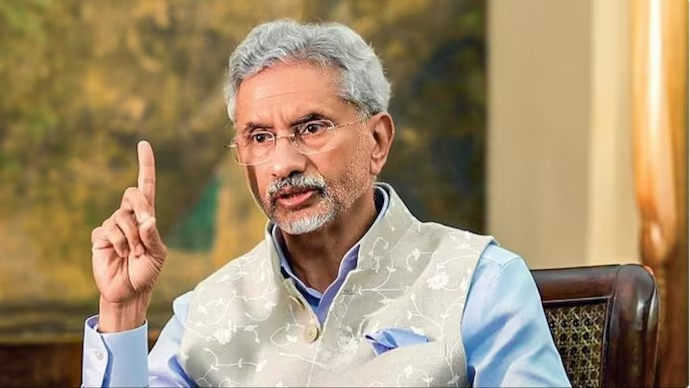Introduction
In a recent surge of violence between kyrgyzstan vs india, international students, including those from India, have found themselves in peril. The Indian mission in Kyrgyzstan has advised its nationals to remain indoors following large-scale mob violence directed at foreign students in the Central Asian country. The situation has caused considerable concern among the Indian and Pakistani governments, both of which have taken steps to ensure the safety of their citizens studying abroad. This article delves into the incidents that have transpired, the reactions from the governments involved, and the broader implications for international students in Kyrgyzstan.
The Incident
The violence erupted following a clash on May 13 between local Kyrgyz and Egyptian students at a hostel in Bishkek, the capital of Kyrgyzstan. This altercation quickly escalated, leading to large-scale protests. Demonstrators gathered in significant numbers, blocking traffic and vandalizing buildings. The violence was reportedly indiscriminate, targeting various international students residing in the city.
Local media reports indicated that the unrest began as a localized dispute but rapidly spread due to social media amplification. Videos of the initial clash went viral, inciting further unrest. The situation deteriorated to the point where security forces had to intervene, resulting in several arrests.
Advisory Issued by Indian Mission
In response to the escalating violence, the Indian mission in Kyrgyzstan issued an advisory for its citizens. “We are in touch with our students. The situation is presently calm but students are advised to stay indoors for the moment and get in touch with the Embassy in case of any issue,” the statement read. The embassy also provided a 24×7 contact number for emergencies.
External Affairs Minister S. Jaishankar took to social media to advise students to remain in close contact with the embassy. “Monitoring the welfare of Indian students in Bishkek. The situation is reportedly calm now. Strongly advise students to stay in regular touch with the Embassy,” he posted.

Reactions from Pakistan
The Pakistani government also responded swiftly to the crisis. The Pakistani embassy in Bishkek issued an advisory for Pakistani students, urging them to stay indoors and remain vigilant. The embassy highlighted that while there were reports of minor injuries among Pakistani students, there had been no confirmed fatalities or severe injuries.
Pakistan’s Prime Minister, Shehbaz Sharif, expressed deep concern over the situation and directed the Pakistani Ambassador to Kyrgyzstan to provide all necessary assistance. “Deeply concerned over the situation of Pakistani students in Bishkek, Kyrgyzstan. I have directed Pakistan’s Ambassador to provide all necessary help and assistance. My office is also in touch with the Embassy and constantly monitoring the situation,” he wrote on social media.
Broader Context: International Students in Kyrgyzstan
Kyrgyzstan has become a popular destination for students from South Asia, particularly those pursuing medical education. As of April 2023, approximately 9,500 students from India, Pakistan, and Bangladesh were studying in various medical universities across the country. The affordability and quality of education in Kyrgyzstan make it an attractive option for many students.
However, the recent violence highlights the vulnerabilities faced by international students in foreign countries. The presence of a large number of international students can sometimes lead to cultural and social tensions, as seen in the current situation in Kyrgyzstan.
The Role of Social Media
The rapid spread of videos and information on social media played a significant role in escalating the violence. The initial clash between Kyrgyz and Egyptian students was amplified through various social media platforms, leading to widespread unrest. This phenomenon underscores the power of social media in influencing public perception and behavior, especially in times of crisis.
Ensuring Safety and Security
In light of these events, both the Indian and Pakistani governments are taking measures to ensure the safety of their students. The Indian Embassy has been proactive in maintaining communication with the students and providing them with necessary support. Similarly, the Pakistani Embassy has been in constant touch with over 250 students and their families, offering assistance and reassurance.
The embassies have also emphasized the importance of staying indoors and avoiding any areas of conflict. They have provided emergency contact numbers and encouraged students to report any issues immediately. This coordinated effort aims to mitigate the risks faced by international students and ensure their well-being.
Looking Ahead: Kyrgyzstan vs India Relations
The recent violence in Kyrgyzstan poses challenges to the diplomatic relations between Kyrgyzstan and India. While the primary focus remains on ensuring the safety of students, these incidents can strain bilateral ties. The Indian government is closely monitoring the situation and may consider further diplomatic engagements to address the safety concerns of its citizens.
Also Read : IPL 2024 Playoffs Scenario: The Battle for the Final Spot
Conclusion
The recent incidents of violence in Kyrgyzstan have brought to light the challenges and risks faced by international students. The swift response from the Indian and Pakistani governments highlights the importance of diplomatic intervention in ensuring the safety and security of their nationals abroad. As the situation unfolds, it is crucial for the authorities in Kyrgyzstan to address the root causes of the unrest and ensure a safe environment for all students.
The keyword “kyrgyzstan vs india” aptly encapsulates the current tension and the efforts of both nations to protect their citizens. While the situation in Bishkek remains tense, the collaborative efforts of the Indian and Pakistani governments. Along with the Kyrgyz authorities, aim to restore peace and ensure the safety of all international students in the country.









